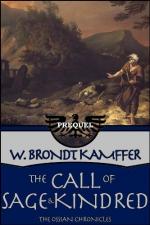|
This section contains 5,346 words (approx. 18 pages at 300 words per page) |

|
SOURCE: "Ossian, Scott, and Nineteenth-Century Scottish Literary Nationalism," in Studies in Scottish Literature, Vol, XVII, 1982, pp. 39-54.
Below, Manning contends that the controversy over the authenticity of Ossian "was artificially maintained into the nineteenth century," when literary issues were confused with the "contemporary national antagonism between England and Scotland."
The "Celtic Revival" of the later eighteenth century formed part of the wider European movement away from literary neoclassicism towards a primitivist stance which looked to the barbarous past of "uncivilised" nations as the true wellspring of untutored inspiration and poetic truth. Research into the nature of the Celtic past was chiefly carried out by such accomplished classical scholars as Thomas Gray and Evan Evans, who gave respectability to the enterprise, and produced such work as the latter's Specimens of the Poetry of the Antient Welsh Bards.1
In Scotland a young Highland schoolmaster, James Macpherson, was quick to grasp...
|
This section contains 5,346 words (approx. 18 pages at 300 words per page) |

|


